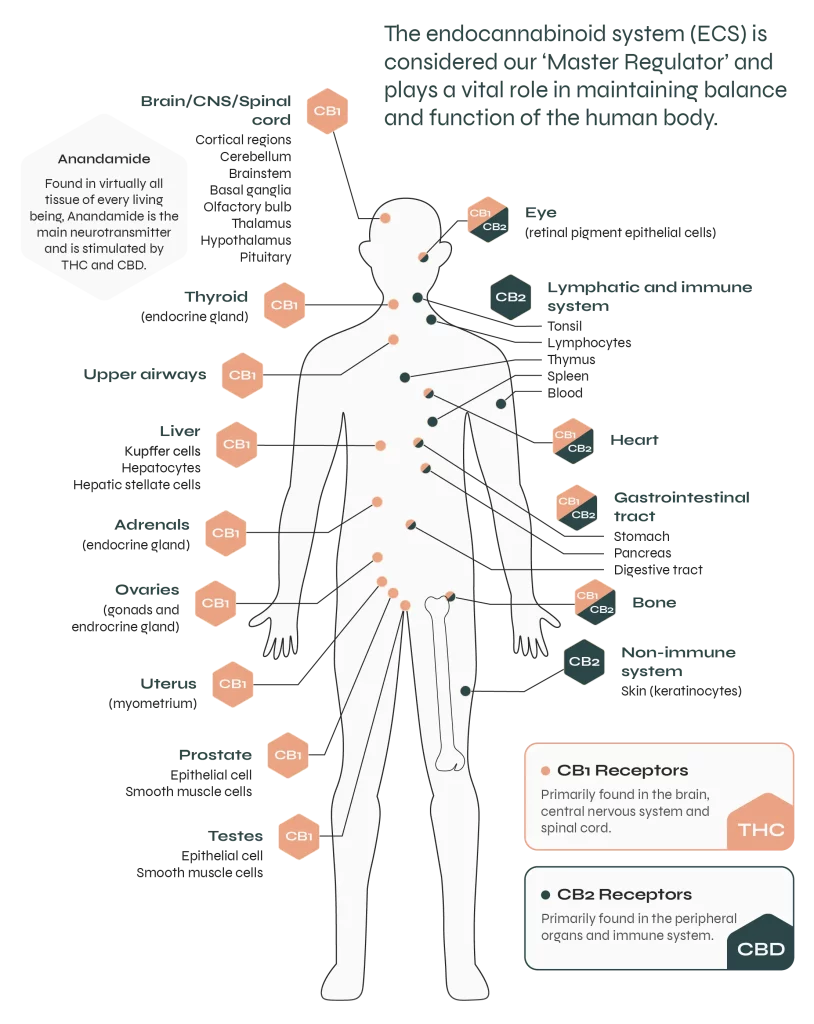The endocannabinoid System (ECS) is considered our ‘Master Regulator’ and plays a vital role orchestrating balance and function in the brain, endocrine and immune systems in all humans.
Our ECS influences many critical functions in the body, including: sleep, pain, inflammation, immune responses and emotional processing. Essentially, it enables optimal human performance.
Ananda Clinics’ treatment plans target the body’s imbalances by stimulating the endocannabinoid system to help relieve some symptoms associated with chronic illness, imbalances and disturbances in the mind and body.
Your ECS is made up of a network of chemical signals and cellular receptors, CB1 and CB2, that are regulated by naturally produced molecules called endocannabinoids.
These molecules can also be replicated.







